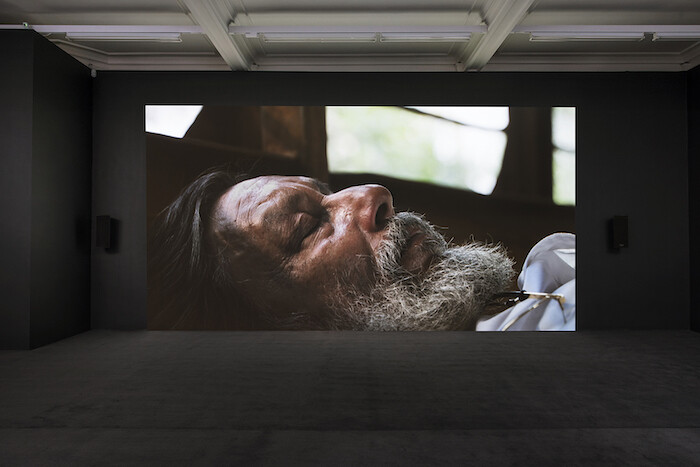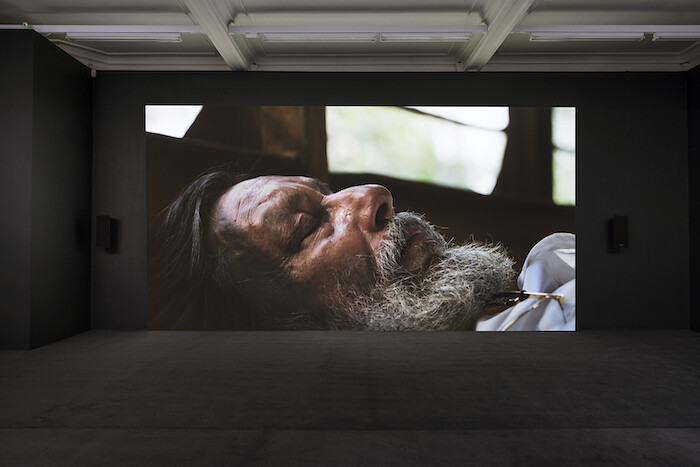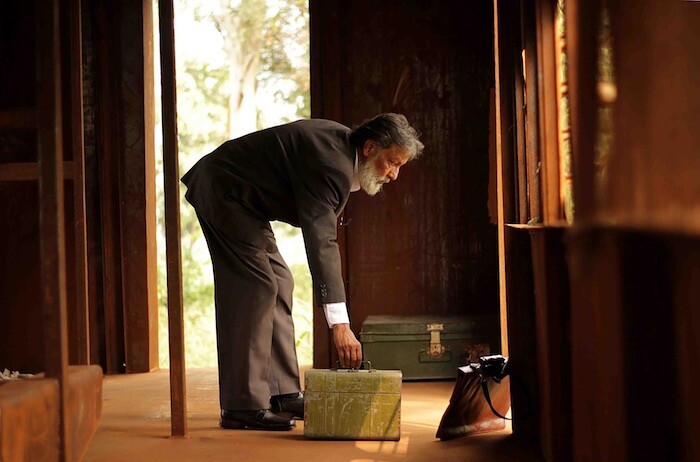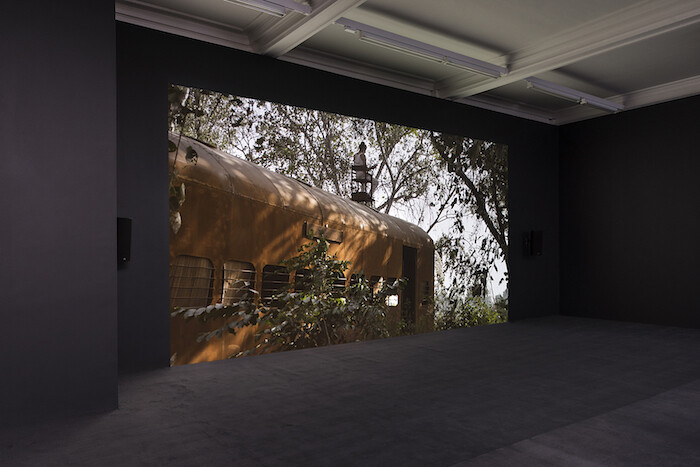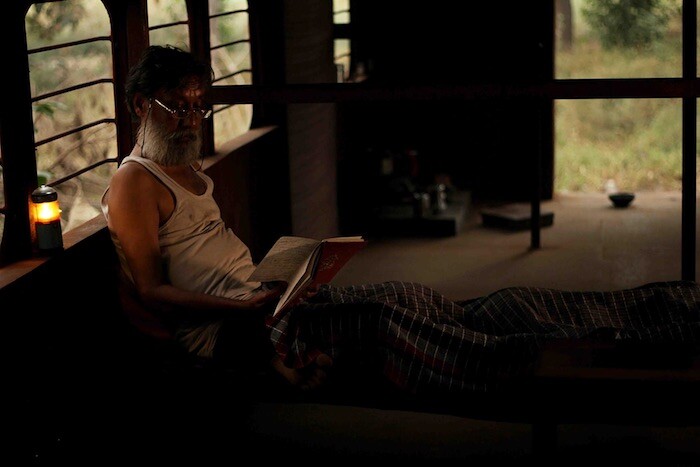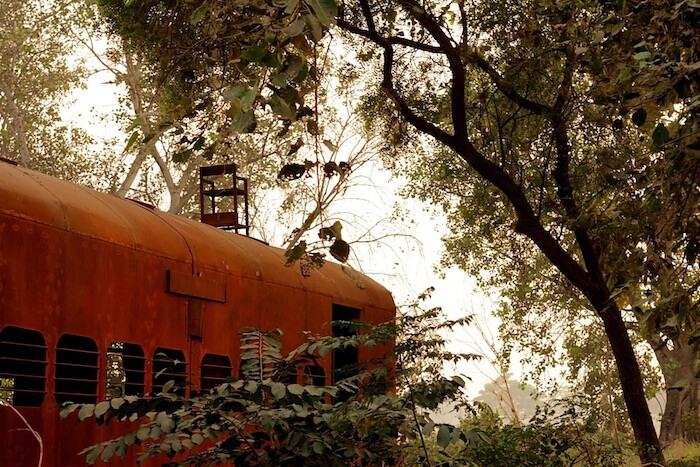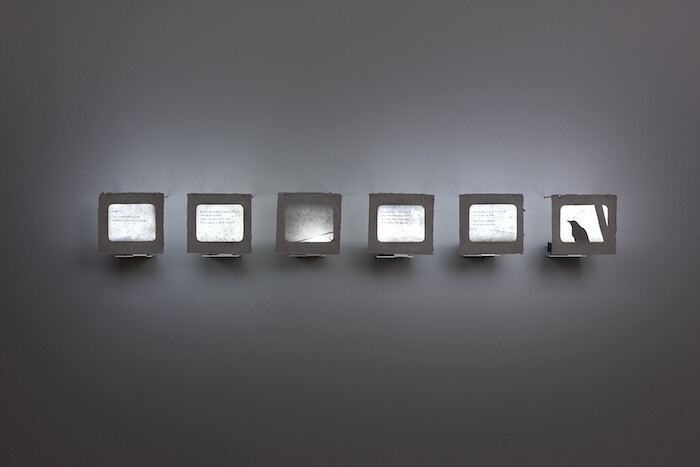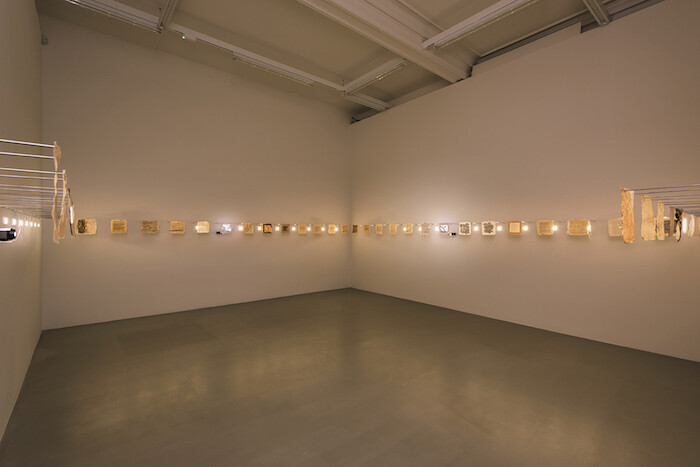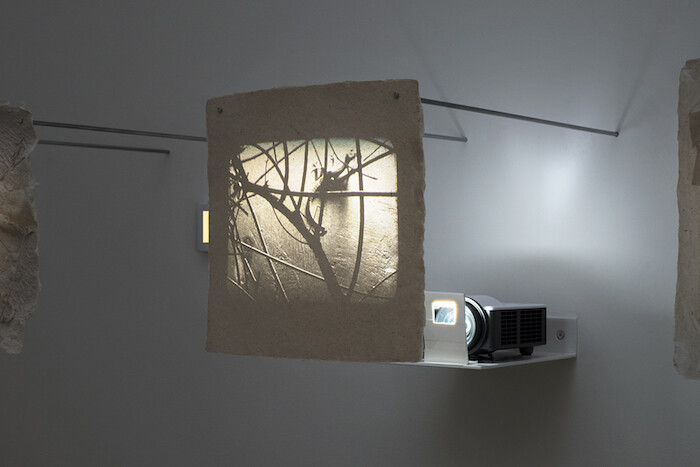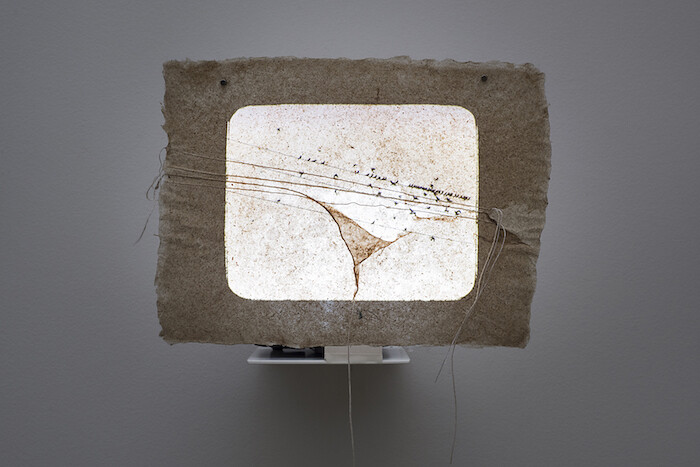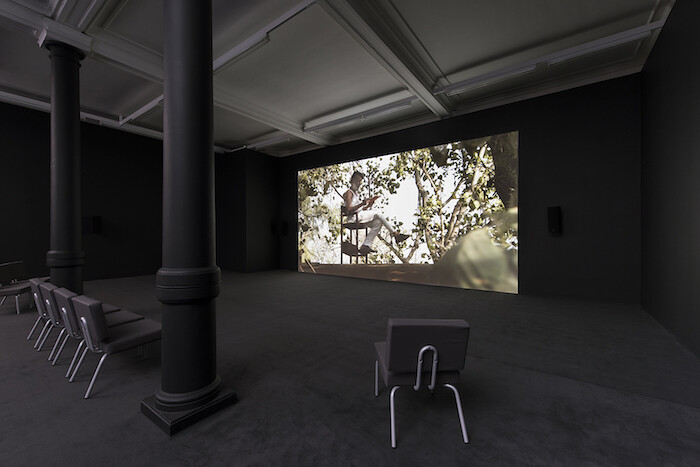Amar Kanwar’s latest video installation delves into more mystical concerns than the documentary format, for which he is known, might seem capable of containing. The eponymous single-channel video at the heart of “Such A Morning” (all works 2017) is an exquisitely installed piece of visionary slow cinema—a work whose mode comes close to magical realism, speculative fiction, or fractured moral parable. Where Kanwar’s earlier films always had one foot in reality, this 85-minute work unfurls a loose narrative in which a famous but unnamed mathematics professor quits his job for no good reason (his colleagues guess at a “deep inner question of the soul” or “a complex conflict of ideology and prejudice”), and retreats to the wilderness to live in an abandoned train carriage. Previously installed at Documenta 14, Such A Morning voices a general existential question: how to live in the present?
Such A Morning is a cinema of affect at its most seductive. Kanwar’s camera captures verdant leaves, rust, and old wood; his soundtrack includes traditional Indian music of flutes and strings. Immersed in this sensorial world, the mathematician’s mind appears to transcend the world of logic, deduction, and syllogisms, to a new plane of emotional resonance between environment and the senses. He crawls around his train carriage like an animal. He slowly strips his clothes off, removing his professorial suit and shirt, down to his underpants. He seals himself into the darkness of the carriage, blacking out its windows. Losing his sight, he gains new visions, like a blind seer. Noting down his reverie in an “Almanac of the Dark,” he composes a series of letters to colleagues, students, and “children of the street.” Among his more memorably gnomic pronouncements are that there are 49 types of darkness, and a mystical pure white “cosmos” flower can cure blindness.
While there is no spoken narration, intermittent titles offer a backstory that sets up a drama between light and dark, enlightenment and inner visions. The video begins with an eclipse, which takes place early one morning (and which gives the work its title). The eclipse causes panic among a flock of crows. They leave the city to wait on its margins for a new paradigm for the world (this, of course, is the professor’s task). The titles bear an almost sardonic literariness: when the professor leaves the university, his departure prompts “murmurs,” which become “whispers,” and then “mosquitos.” A register of surrealism also pervades: a war breaks out in which “the living were killed rapidly / and the dead came back to fight again.”
These hauntings flow through the work, which is at least partly concerned with issues of cultural and collective memory (a continuous theme in Kanwar’s work). As isolation grips the professor, we see a middle-aged woman in an old wooden house, who sits in a chair grasping a rifle that looks more antique than lethal. She in turn is more ghostly than threatening; a team of workmen slowly tears the house apart around her while she sits impassively. The scene is like a fable that is hard to fully discern: the house might be history, memory, or a version of India under threat from the ongoing winds of modernity. The video’s motifs are picked up in the other elements of the exhibition: a series of works each titled Letter, which consists of small digital projectors that throw images of crows or letters apparently from the professor’s “Almanac of the Dark” onto rectangles of fiber paper. These Letter pieces are like inverse documentary evidence: objects that have spun out of a fiction film into the real world.
For all its detachment from documentary norms, a thread remains. Such A Morning blends older elements of artists’ documentary and newer concerns with sensorial registers outside of the visual. As a work concerned with hauntings and counter-memory, it is part of a broader trend of postcolonial and feminist work being made since the 1980s. The repetition of these ideas verges on the clichéd (I’ve maybe seen too many artists’ films on haunted, abandoned places). More current is Kanwar’s exploration of non-rational experience, with a number of documentary artists presently exploring visionary experience, sight-loss, hallucinations, or an individual or community’s sublime emersion in the landscape—see, for example, recent films by Ben Rivers, Ben Russell, Apichatpong Weerasethakul, and Véréna Paravel and Lucien Castaing-Taylor (as well as the vital earlier work of Parviz Kimiavi). Kanwar’s Such A Morning merges this mining of sensorial experience with issues of ecology and justice, evident in the bucolic setting, and the professor’s warnings of societal disaster. I am by no means convinced that Kanwar’s professor has the answers to the modern world’s many ills. But I will follow his journey, just in case.
